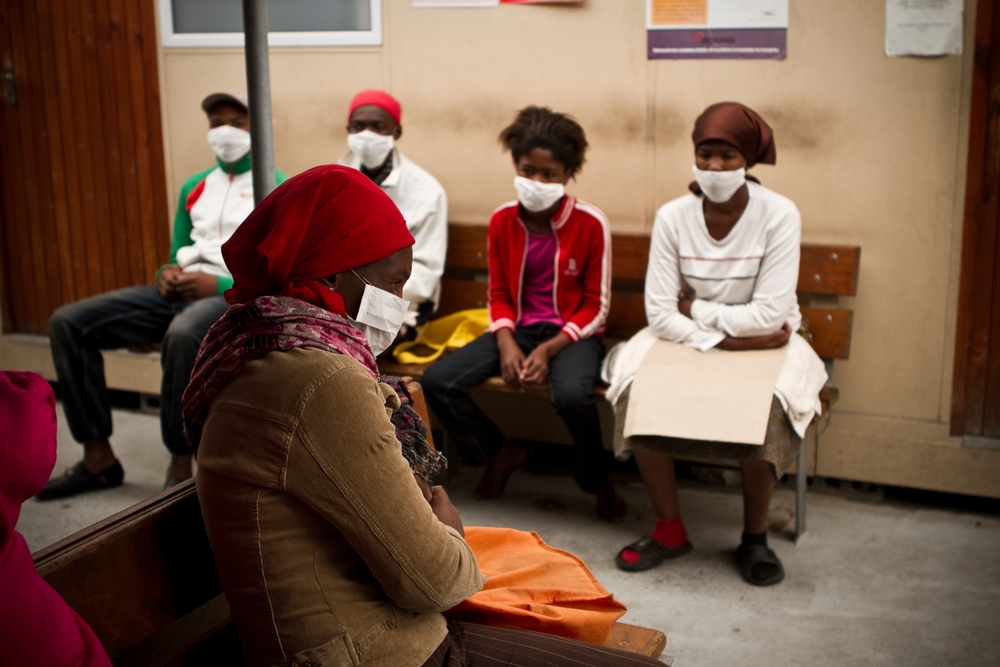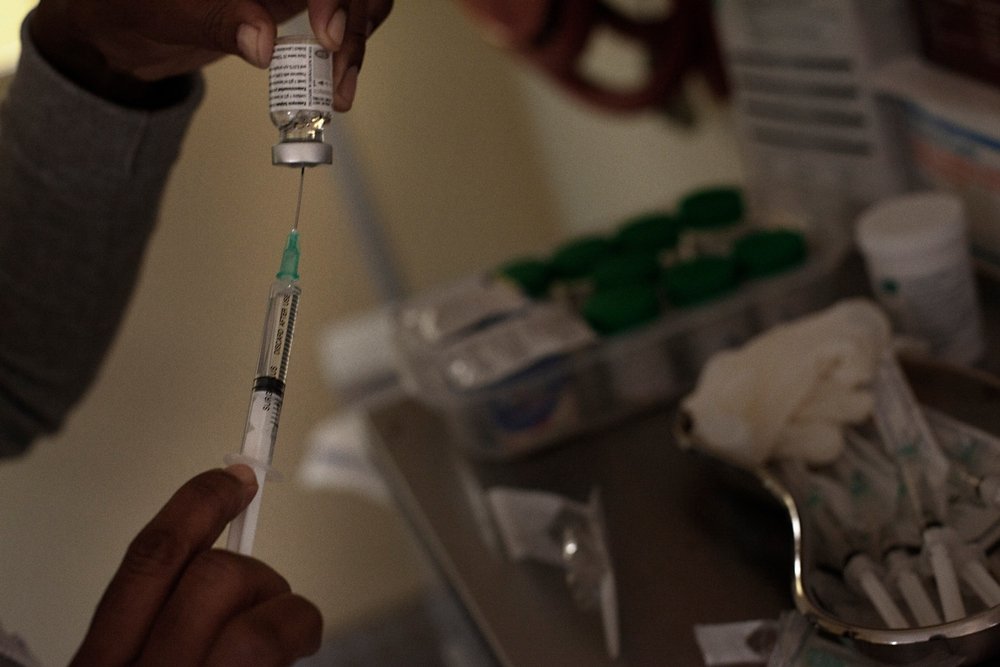
CAPE TOWN – Marching to Parliament the Treatment Action Campaign (TAC), Doctors Without Borders (MSF) and SECTION27 led over 1,500 health activists from 13 organisations to express dismay over the government’s ongoing delays in completing South Africa’s Intellectual Property (IP) policy, in line with their Constitutional obligation to realise people’s right to health.
“It’s taken the Department of Trade and Industry six years to work on the policy which could allow people in South Africa far greater access to affordable medicines. That’s longer than today’s outgoing members of Parliament have been working to usher in better laws! As MPs now embark on electioneering they should take up this issue in their constituencies where many people’s lives depend on access to affordable drugs. MPs should wake up and push the DTI to stick to their public promise to complete the National IP Policy by April,” says Anele Yawa of the Treatment Action Campaign.
The draft IP policy proposes implementing measures that would improve access to life-saving medicines for all in South Africa. But a plot, exposed by the Mail & Guardian newspaper in January, sought to delay the finalisation of the policy until after the elections so industry could lobby its interests.
Currently, South Africa does not examine patent applications to assess whether they meet the country’s criteria for what deserves a patent – despite the Patents Act mandating such a system. Instead, South Africa registers any patent for which the paperwork is filed and fees paid. Pharmaceutical companies exploit this to gain additional 20-year patents by making minor changes to medicines that are already on the market. This gives them new patents that block competition, keep prices high and medicines out of reach. Such abusive drug patenting has led to artificially high medicine prices, lining the pockets of international pharmaceutical companies at the expense of ordinary people in South Africa – and our economy.

Frivolous patents result in excessive private sector prices for patented medicines up to 35 times higher in South Africa than in countries like India, where robust generic competition exists. The Department of Health is concerned about the affordability of its HIV treatment program, as hundreds of thousands among the 2.4 million people on antiretroviral (ARV) treatment may need to switch to more expensive ARVs in the next few years. As more patients develop resistance to first-line ARVs, switching an individual to a standard second-line regimen more than doubles the cost of treatment in the public sector, while third-line drugs cost over 15 times more than a first-line regimen.
“To combat growing epidemics such as drug-resistant tuberculosis (DR-TB), diabetes and cancer – where a single drug can cost several hundred thousand rand to treat just one patient – the laws on our books need to facilitate access to lower-cost generics. Right now, vital drugs can cost more in South Africa than in India, China, Japan, and sometimes, even the U.S. or Europe. In Khayelitsha, MSF has had to limit access to a promising DR-TB drug, linezolid, because it is simply too expensive to prescribe to everyone who could benefit from it. When medicines are unaffordable, people pay with their lives,” explains Julia Hill of MSF.
South Africa’s current IP system not only hurts patients but also the country’s economy. Imported medicines are the fifth largest contributor to the country’s trade deficit, according to DTI statistics, which is driven mostly by high costs of patented drugs.
“Next week MPs who are part of Cabinet will have their final meeting before the elections. We demand, that if the DTI fails to submit their completed policy to Cabinet by Wednesday, it must condemn this delay because ordinary people in South Africa will continue to face excessively high medicine prices that cost government billions and balloons South Africa’s pharmaceutical trade deficit.” says Mark Heywood of SECTION27.
“The proposed IP reforms are not radical. The reforms are internationally recognised as legitimate, rational responses to address South Africa’s massive health and economic needs. If members of Parliament are to meet their Constitutional obligations, they must act swiftly to fix the patent laws to improve access to medicines in South Africa for the people they serve.”
Find out more about MSF in South Africa
FOR MORE INFORMATION & INTERVIEWS CONTACT:
- Kate Ribet, MSF South Africa | mobile : +27 79 872 2950
- Lotti Rutter, TAC mobile | +27 81 818 8493
- To learn more about TAC/MSF/SECTION27 recommendations to “Fix the Patent Laws”, visit: www.fixthepatentlaws.org
- To learn more about the Economic and Social Case for Patent Law Reform, see this TAC Research Paper